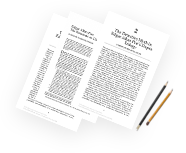Watch the movie the Breakfast Club,after watching the movie analyze it from a group process conceptual framework, and submit an analysis which addresses the following: 1) Apply all the stages of group development using Tuckman”s Group Process Stage of Development. See this link: http://www.school-counseling-zone.com/stages-groups.html Make sure to reference specific events in the movie that illustrate the particular stages.
2) Describe how the group cohesiveness builds as the group gets to know one another. What activities help the group members bond? As the group leader of a counseling group composed of these individuals, how would you increase the cohesiveness in the group? 3) Who is the leader in this group and how does he or she emerge through the group:s interactions? Give specific examples of leadership from the film.
#Apply #stages #group #development #Tuckmans #Group




